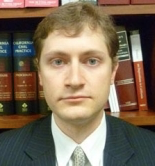Grinberg: WCAB Rejects 'Every Specific Injury Is a Violent Act' Theory
Thursday, January 10, 2019 | 0
I have repeatedly expressed my frustration with the interpretation of Labor Code Section 4660.1(c)(1) and the “violent act” definition.

Gregory Grinberg
Labor Code section 4660.1 provides in pertinent part that you don’t get an increase in permanent disability for compensable consequence psyche claims unless the injury is “catastrophic” (since we don’t have a definition for this term of art, I am imaging a cat that works as an astrophysicist) or being a victim of a violent act or being exposed to a significant violent act.
The Workers' Compensation Appeals Board took this and ran with it to find that a violent act was just a strong physical blow, and not necessarily one of criminal or quasi-criminal nature. So, in Larsen v. Securitas Security Services, a 2016 panel decision, a security guard accidentally struck by a car in a parking lot could claim a compensable consequence psyche injury.
The result of this line of thinking is that almost every applicant attorney claims that so long as the injury is not cumulative in nature, but a specific injury, it is, of course, a “violent act” and thus renders 4660.1(c)(1) moot.
Well, not so fast.
Reader D.Z. kindly sent me a recent panel decision in the case of Martin Garcia v. Harvest Church, which seems to resist this trend. Applicant therein claimed a compensable consequence psyche injury after a gate fell on his foot. Although the left foot claim was accepted and the psyche compensable consequence was accepted for the purpose of obtaining medical treatment, defendant disputed that the psyche claim entitled applicant to increased permanent disability.
In terms of the mechanism of injury, applicant was working on a gate when it fell on his foot. Afterwards, applicant opened several more gates before reporting what happened to coworkers in the building office. He declined to be taken to the emergency room and instead drove home before driving himself to Kaiser, where he underwent surgery the next day.
In rejecting applicant’s claim that the mechanism of injury constituted a violent act, the opinion of the WCAB turned on whether the mechanism of injury was “extreme or intense,” comparable to other cases of this sort that did result in such a finding.
The WCAB relied instead on the case of Zarifi v. Group 1 Automotive, where the board held that a violent act did not occur when walking into a glass wall and did not result in the loss of consciousness or the need for immediate medical treatment.
In other words, this was not intense enough, neither in the force of the blow or the resulting medical consequences, to qualify as a “violent” act.
What does that mean for us down in the trenches? There’s a good chance that your slip-and-fall, minor bump, less-serious specific injuries will not qualify for the psyche increase.
It also gives incentive for defense attorneys to explore in greater detail the intensity of the blow and bring to a qualified medical evaluator's attention first-responder reports.
Now, all that being said, I am a firm believer that this interpretation of 4660.1 to allow a non-criminal action to be considered a violent act is incorrect and defies legislative intent or even the plain meaning of the statute.
As reader W.A. pointed out previously, section 4660.1(c)(2)(A) provides that it’s not just a “violent act” but a “violent act within the meaning of Section 3208.3.”
We’ve had 3208.3 for a while, and there is a veritable Russian novel’s worth of case law about what violent act triggers 3208.3 psyche injury compensability. And defining a violent act as a “strong physical blow” is not “within” the meaning of 3208.3 but pretty far outside it.
Furthermore, this blog has gone on at length about prior treatment of the term by the Court of Appeal.
Unfortunately, this issue, to wit — whether a strong blow can be considered a violent act for 4660.1(c) — will have to go up to the Court of Appeal or the good folks in Sacramento before it can be brought in line with this blog’s self-important and self-aggrandizing interpretation.
And, when that happens, I will sing you all a song that will be stuck in your heads forever: “Greg was right, you were wrong, you should have listened all along.”
Gregory Grinberg is a workers' compensation defense attorney at the Law Office of Gregory Grinberg, based in the San Francisco Bay Area. This post is reprinted with permission from Grinberg's WCDefenseCA blog.







Comments